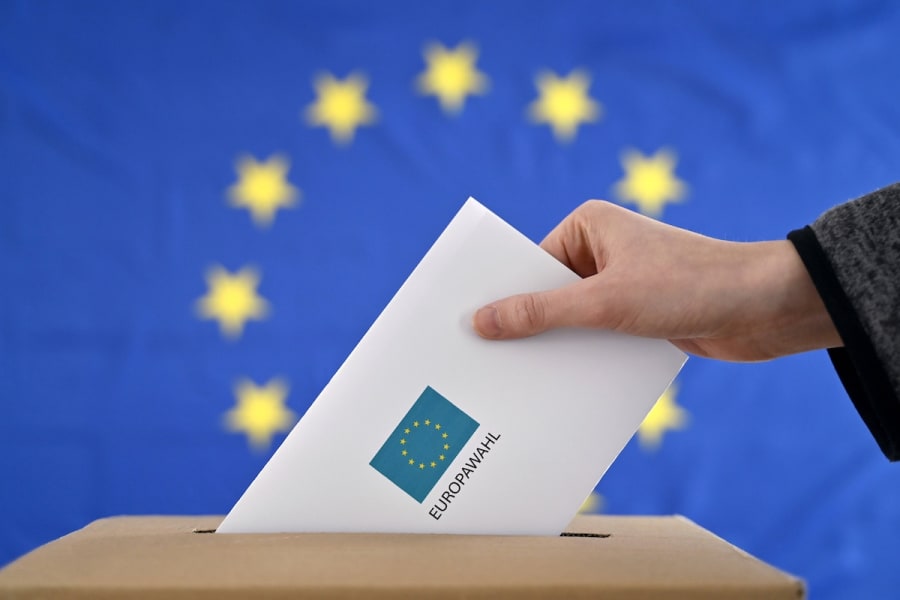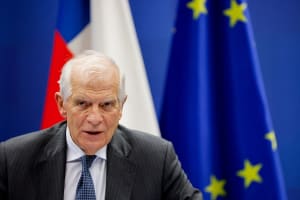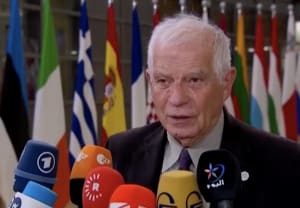European Parliament election and why it matters to Israel

The European Union matters more than we might think in the international arena, and the upcoming elections for the EU parliament in June may have dire consequences for Israel. For this reason, it’s vital to keep track of what is happening. If you – like me – happen to hold EU citizenship, please find a candidate from your country who supports Israel and stands up against antisemitism.
Not long ago, the EU parliament voted on a resolution for an immediate cease-fire in Gaza, but due to the diligent work of pro-Israeli MEPs (Members of European Parliament), a clause was added that a ceasefire “would be conditional on the dismantling of the Hamas terrorist organization and the immediate and unconditional release of all the abductees.” These resolutions matter more than we think, and they shape decision-making in many countries, inside and outside of the EU.
When we hear bleak reports of massive anti-Israeli demonstrations and aggressive pro-Palestinian resolutions in Europe, it might be easy to dismiss the EU as a “lost cause” when it comes to its policy about Israel. But I think we often forget the strong sense of freedom and democracy that prevails throughout Europe, especially since the fall of the Iron Curtain. Next to the United States (and perhaps Japan and Great Britain), the EU is the only large and powerful international actor standing up for these values. Russia and China definitely do not, and the United Nations lost its credibility a long time ago. This makes the EU an important and vital ally of Israel.
Unlike the UN and other multi-national organizations, the EU is not just ruled through agreements between governments but also has a parliament with members who are directly elected by the citizens of the EU once every five years. In terms of how many people are eligible to vote, the EU is the second largest democratic parliament in the world, second only to India. Despite this, less than 50% of the EU citizens actually use their right to vote.
The EU parliament is one of the more powerful institutions of the European Union. Besides being the chief legislative body, they have committees working on drafting resolutions and delegations cooperating with parliaments of other countries, including with the Knesset in Israel. It’s important to fill these places with as many God-fearing people who understand the importance of Israel as possible.
How does it work? Well, think of it as similar to the U.S. House of Representatives, but imagine that you can only vote for your congressmen in the House. You can’t vote for your senators or your president’s cabinet, they are all picked by your state governments, and the president himself is elected by the House. That’s sort of how the EU works. Since the EU only accepts democratic members, it ensures that even the non-elected officials are at least picked by democratically elected governments.
Many EU institutions have 27 members, one for each country, giving every country equal representation, no matter the size of the country. This is similar to how the U.S. Senate operates, with two senators per state, no matter the size of the state. The EU parliament, on the other hand, has 705 MEPs and each country is allocated a fixed number of seats based on population size. Currently, 96 are from Germany, 79 from France, 59 from Spain, and so forth, until just 6 from the smallest countries like Luxembourg, or Cyprus. I’m a Swedish citizen, so my vote goes to one of the 21 seats allocated to the Swedish representatives.
Unlike the U.S., there are not just two parties to vote for. In fact, each country has its own system of how to fill its seats, and the political parties are different in each country. This makes it the parliament with possibly the largest amount of different individual political parties. But once they’re elected, these numerous political parties are organized into “groups” where all the socialist parties are lumped together, all the liberal parties are a different group, and the conservatives another, and so forth. In all, there are currently 7 different political groups like these and a number of non-affiliated national parties. There is never a clear “winner” since no group ever holds a majority of the seats, and they always need to compromise. The conservative EPP is usually the largest group, with the socialist "S&D" in second place, and the liberal “Renew” group third. Collectively, those three currently control 59% of the parliament and will generally compromise on major legislation or resolutions while turning to the smaller fringe party groups on either extreme if they need a majority for more specific issues. There are currently two smaller right-wing groups that are more extreme in their anti-federalist and anti-immigration policies (ECR and ID), one smaller extreme left group (just called “the left” since they can no longer use the word communist) and one left-leaning group of green environmentalist parties (the “Greens”). Since the 2019 elections, the groups on the left can reach a slight majority in the parliament if they cooperate with the liberals and, thus, override the conservatives.
After the elections, the parliament must elect a new president of the EU Commission. The current president, Ursula von der Leyen, is running for another five-year term, and she is from the CDU, a German conservative Christian party. She visited Israel to express solidarity on Oct. 13, has referred to Israel as a “vibrant democracy” in the Middle East that made “the desert bloom” and has accused Iran of being behind Hamas. She has been a strong and courageous voice for Israel and against Iranian influence in the Middle East. You might think the EU is a lost cause – but it’s really not. But it might become a lost cause if powerful voices like hers have less influence.
Most countries allow you to vote for a specific candidate – and there are plenty of pro-Israel candidates from every country. Their important work in the parliament often tones down otherwise aggressive tones against Israel, stands up for Israel’s right to defend itself, and often work tirelessly to raise awareness for Israel among other MEPs. Just a few months ago, they organized a conference on the problem of radicalization in the Palestinian education system, funded by many EU member states. This often extends not only to security and defense issues but also to advancing EU trade relations with Israel, increasing cultural exchange programs, and engaging Israel in combating European antisemitism.
If you’re an EU citizen, or know someone who is, please take a look at the candidates from your country and look for the ones who support Israel. These elections easily go under the radar, but they are more important than you might think. It will play a role in combating antisemitism, standing up for Israel, and defending Europe and the free world from a nuclear Iran.

Tuvia is a Jewish history nerd who lives in Jerusalem and believes in Jesus. He writes articles and stories about Jewish and Christian history. His website is www.tuviapollack.com
You might also like to read this:

















